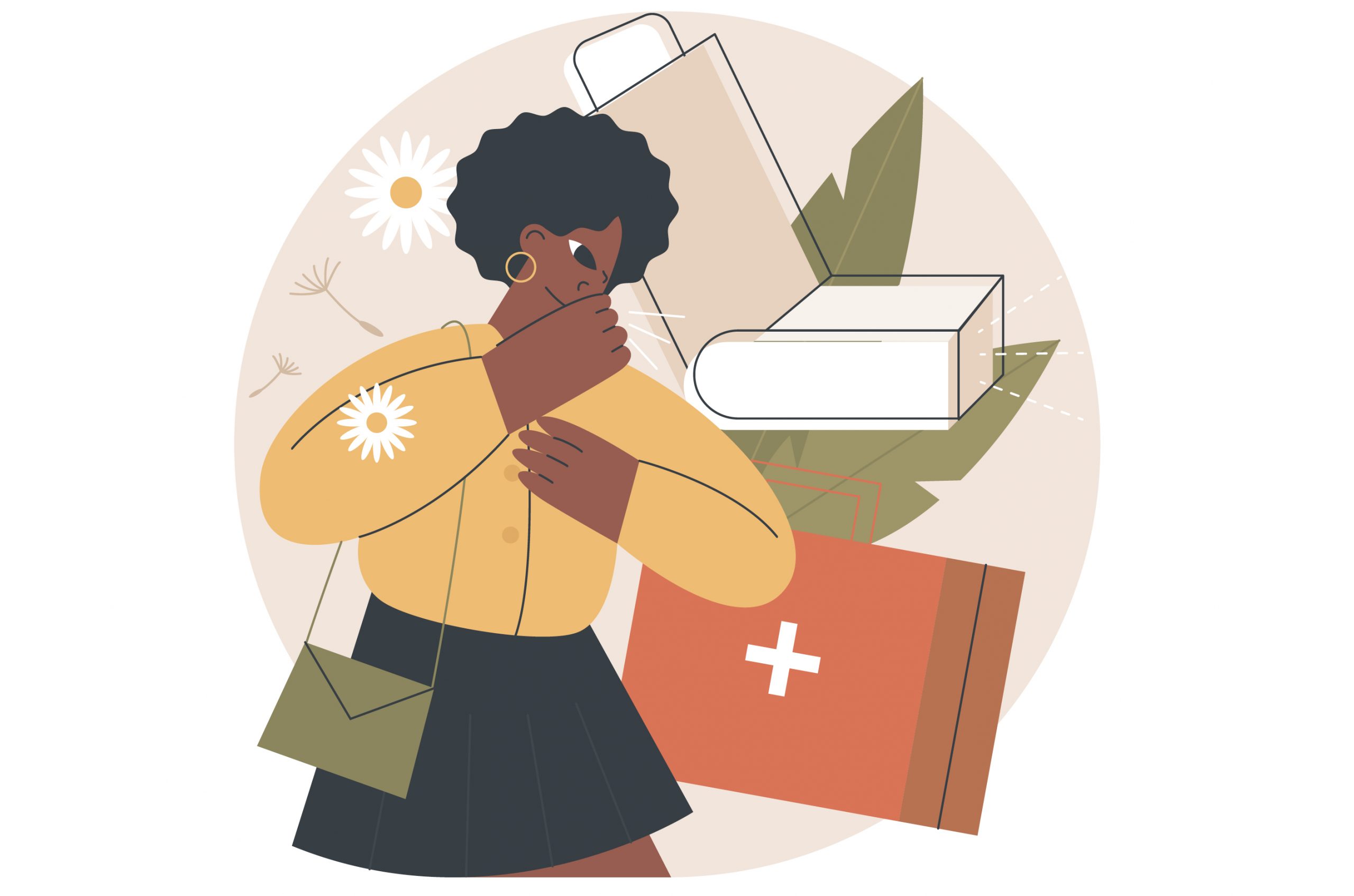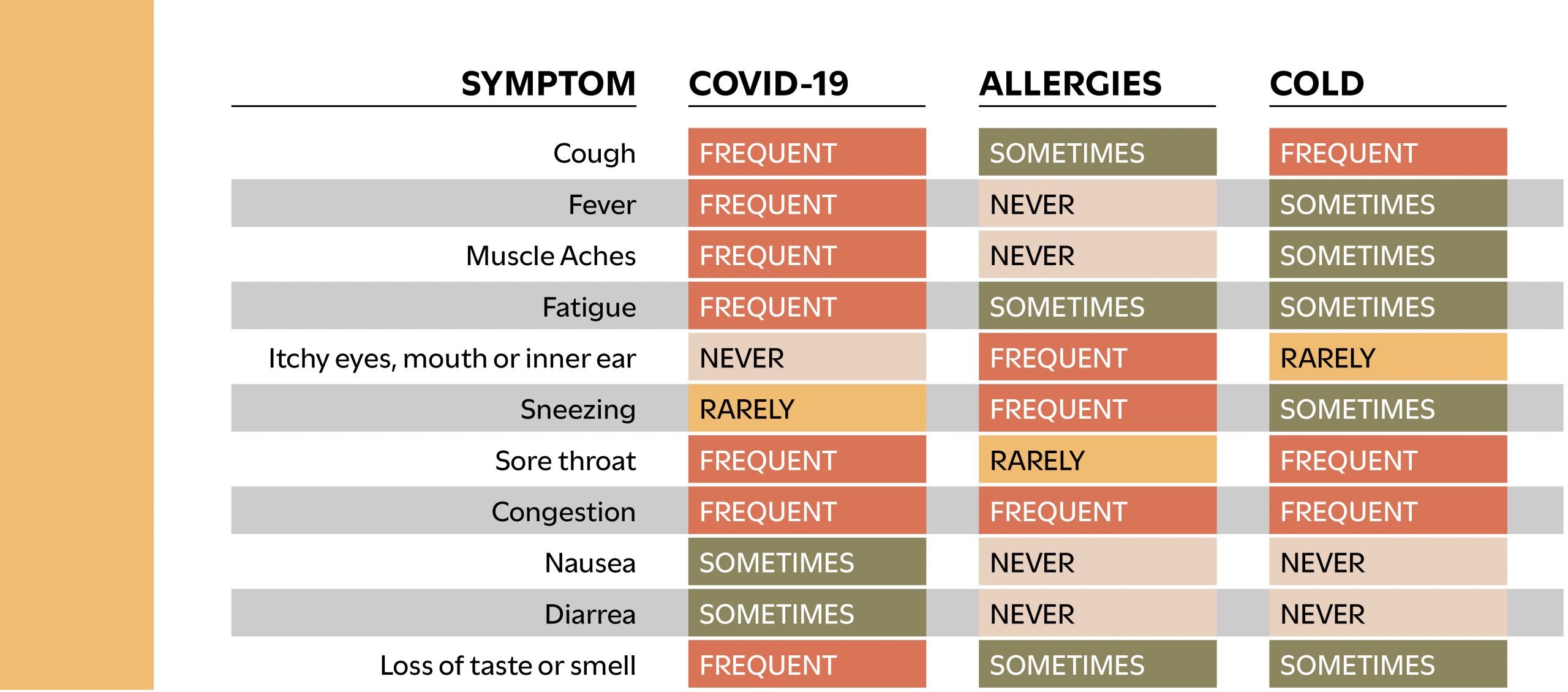Whether it is due to changes in humidity, seasonal weather or flu and cold, the fall can bring with it congestion and discomfort that almost everyone has to deal with. Allergies affect more than 50 million Americans, and the common cold is … well, common! Here are some tips to reduce symptoms so you can take a deep breath and enjoy autumn.
managing seasonal allergies
Allergies are your immune system’s inflammatory response to a foreign substance. They happen seasonally when your body overreacts to something airborne in the environment, usually pollen or mold. To avoid sneezing, congestion, a runny nose and other bothersome symptoms, there are simple steps you can take to manage your exposure to allergens.
- Keep track of pollen. Check pollen counts in your area—they’re often included with TV or radio weather reports or you can easily find them online. To avoid pollen in your home, don’t leave the windows open when pollen counts are high. Limit outdoor activity in the morning or on dry, windy days because that’s when pollen counts are highest. The best time to head outside is after it rains, which helps clear pollen from the air.
- Reduce your exposure to irritants. Avoid anything that is known to trigger your allergies. If exposure is unavoidable, take allergy medication preemptively to stop inflammation from occurring and prevent symptoms from developing. If your allergies are bad, consult with your doctor about starting medication a few weeks before allergy season starts in the fall and spring.
- Heat your home smartly. Before you turn on your heat for the first time, clean your vents and change the filter. Allergens can get trapped during the spring and summer, and they’ll fill the air once the furnace turns on. Also use a HEPA filter in your heating system to remove particles from the air.
- Clean your home. As the weather cools, we spend more time indoors, and that means dust mites and mold are more of concern in the fall and winter. Clean your floors often with a vacuum cleaner that has a HEPA filter.
- Use a dehumidifier. Removing moisture from the air will help stop mold and dust mites from thriving in your home.
- Rinse your sinuses. Using a saline solution can directly flush mucus and allergens out of your nose to relieve congestion. Saline solutions can be purchased ready-made or as kits to add to water. To reduce the risk of infection, use bottled water if mixing your own solution. You should rinse only with distilled, sterile or previously boiled water.
- Wear a mask during yard work. To avoid allergens when raking leaves or completing other seasonal outdoor chores, make sure your nose and mouth are covered.
natural cold remedies
There is no cure for the common cold. All you can do is treat the symptoms, which themselves are the signs that your body is doing what it’s supposed to and fighting the virus. If you want to limit your intake of over-the-counter cold and cough medications, these natural solutions can help you bounce back.
- Drink fluids. Hydration is key to flushing out germs and thinning mucus and other secretions.
- Make chicken soup. It’s easy to digest, the steam loosens congestion, and the broth hydrates. Studies also have shown the soup can have an anti-inflammatory reaction.
- Run a humidifier. Adding moisture to the air decreases the drying of the nasal passages and throat.
- Eat cold or frozen food and drinks. Popsicles, ice cream or cold beverages can soothe a sore throat.
- Gargle with salt water. Gargling a salt water solution of a ¼ to ½ teaspoon of salt dissolved in an eight-ounce glass of warm water can temporarily relieve a sore throat.
- Get your rest. Sleep boosts the immune system, keeping us healthy and helping us heal.
is it covid-19, allergies or a cold?
The common cold, seasonal allergies and COVID-19 can sometimes manifest in similar ways, especially now that vaccines and new variants are resulting in milder cases of the latter. Despite some indistinguishable symptoms, there are some key differences. Think about your history and consider what symptoms you’ve previously experienced in the fall.









